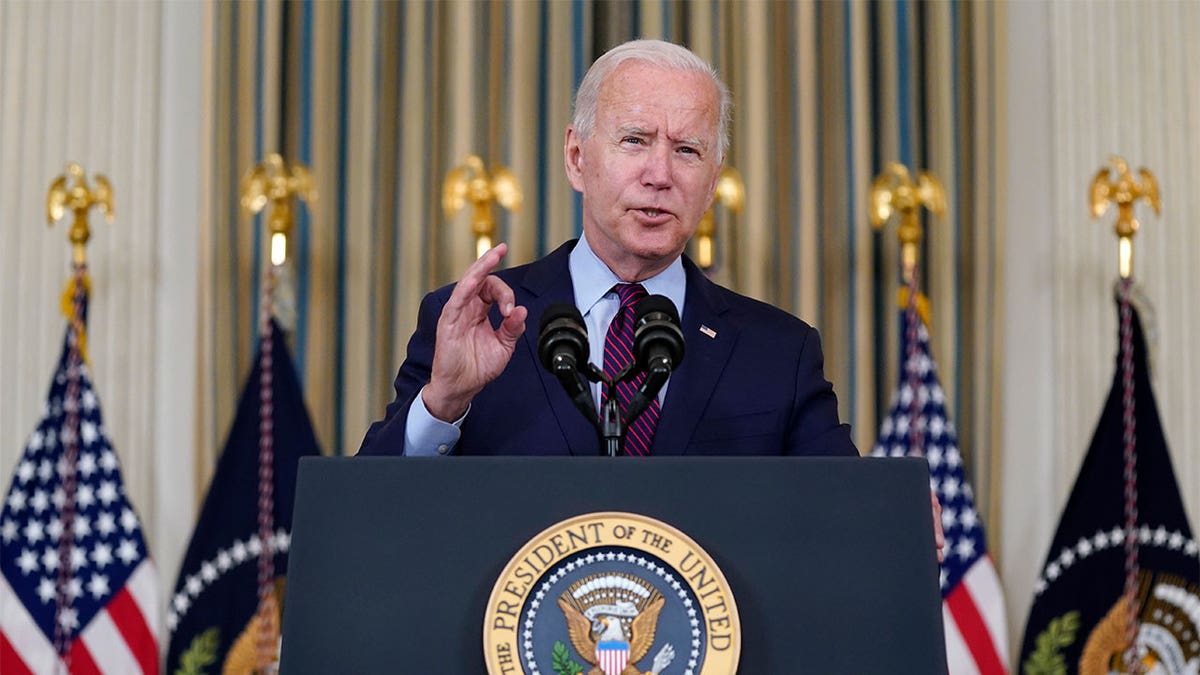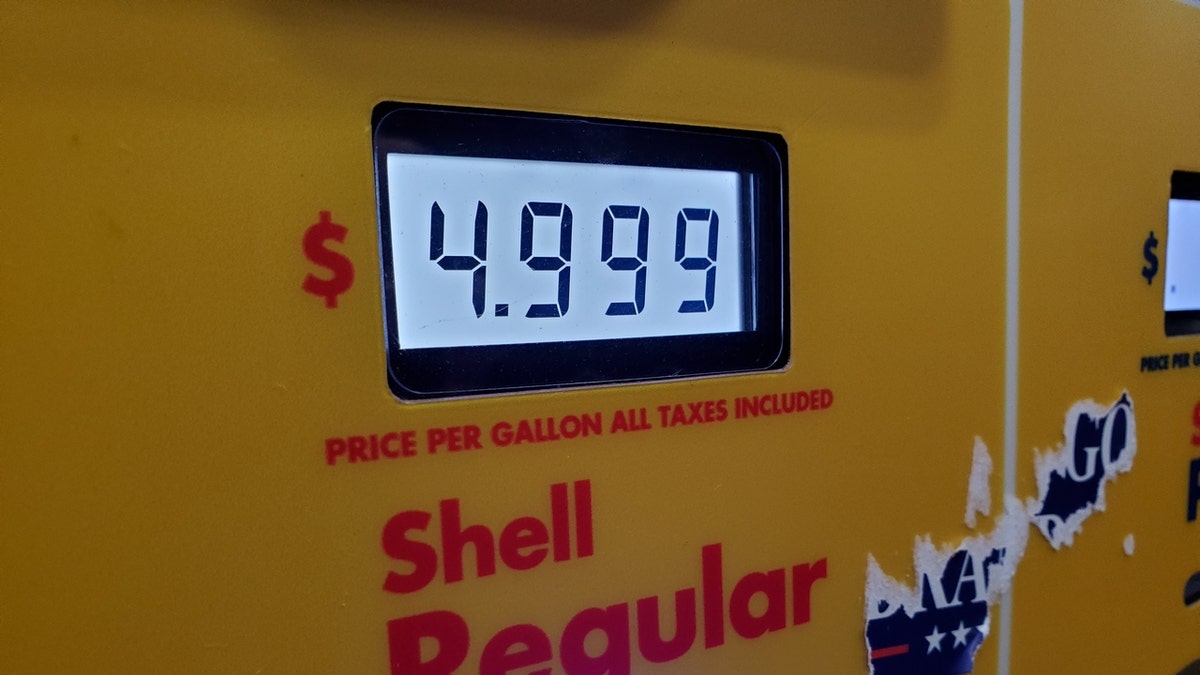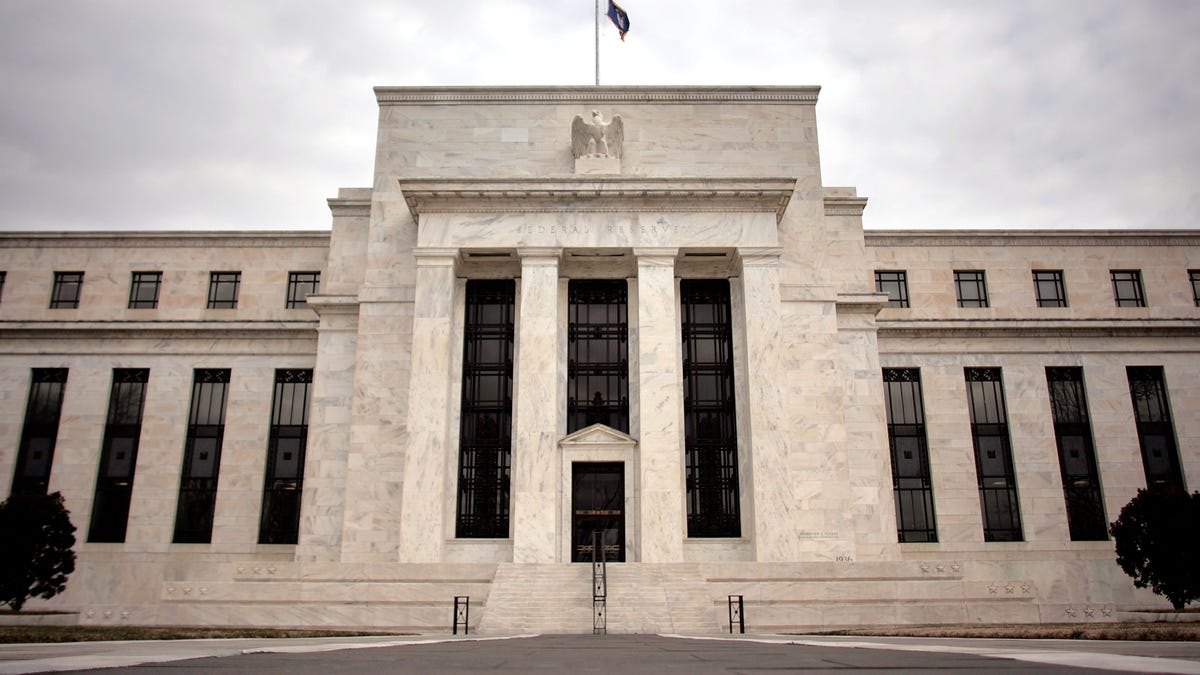Former Dallas Federal Reserve president hits Biden energy agenda
Richard Fisher says he doesn't understand why U.S. would choose to 'beg others' to produce more oil rather than produce it in the U.S.
Richard Fisher, the former president of the Dallas Federal Reserve, criticized President Biden's energy agenda, which he described as an attempt to "beg others" to produce more oil rather than produce it in the U.S. on CNBC's "Squawk Box" Monday.
CNBC reporter Steve Liesman asked Fisher for his take on the diplomatic effort to get gas from Venezuela and Saudi Arabia and other countries with the ability to produce oil to then reduce the prices of gas in America. Fisher reflected on his experience with the Carter administration, in which he served as assistant to the Secretary of Treasury in the late 1970s.

President Joe Biden delivers remarks on the debt ceiling during an event in the State Dining Room of the White House, Monday, Oct. 4 in Washington. (AP Photo/Evan Vucci)
FEBRUARY INFLATION: WHERE ARE RISING PRICES HITTING AMERICANS THE HARDEST?
Fisher said he traveled with Secretary of State Cyrus Vance and Treasury Secretary Michael Blumenthal, who "created a commission with the Saudis and the Kuwaitis." He said they went and "begged them to produce more oil," adding that it was "exactly what is happening today." Fisher noted they also went to meet with president in Venezuela.

Shell gas pump showing high gas prices in Lafayette, California, November 25, 2021. (Photo by Smith Collection/Gado/Getty Images) (Getty Images)
"I'm a Texan. I don't understand why we wouldn't incentivize our own output sector here rather than just go and beg others to produce more," Fisher said.
INFLATION RISES 7.9% IN FEBRUARY, A NEW 40-YEAR HIGH
Inflation hit another 40-year high in February as it rose to 7.9 percent with gas prices rising 6.6 percent. The price of gas accounted for nearly a third of the overall price hikes.
The former Dallas Fed president also discussed inflation and wages with co-host Rebecca Quick, who noted a "complicated" situation for the Fed amid rising inflation as China locked down its tech hub, Shenzhen. Many have warned this could affect the global supply chain.

WASHINGTON - JANUARY 22: The Federal Reserve building is seen January 22, 2008 in Washington, D.C. (Photo by Chip Somodevilla/Getty Images)
Quick said that Fed rate hikes "aren't all that helpful when we're dealing with supply chain trouble," adding that the European Union and the region in general are going to be feeling the economic pain from the war in Ukraine.
"They're going to be asking the central bank there not to raise rates quickly because they're not going to be able to afford more pain," she added.
CLICK HERE TO GET THE FOX NEWS APP
Quick asked Fisher if the U.S. Federal Reserve would do the same or if they were going to raise rates "very quickly" knowing that it would mean a "much sharper dollar" when the European Central Bank would likely not be doing the same.
"It's that complicated," Fisher said, adding that the Fed can't do anything about the "supply constraints."

